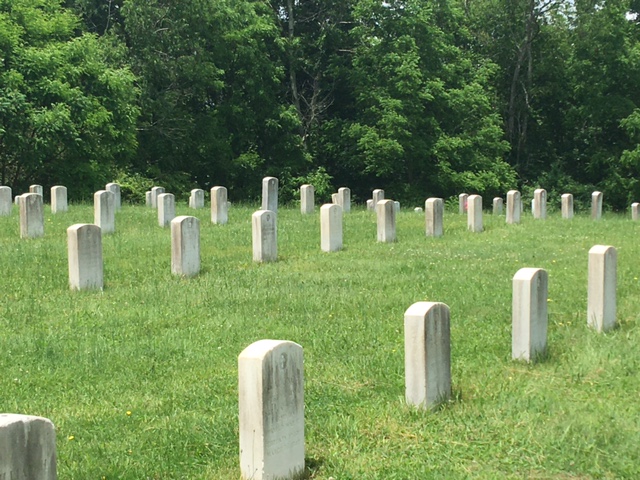In the spring of 2004, the Chaplain approached me one morning in the Task Force First Armored Division Headquarters at the Baghdad International Airport. We were approaching the end of our unit’s fifteen-month deployment, and the attacks by the Mahdi Army under Shia Cleric Muqtada al-Sadr had killed many of our men. The Chaplain had to preach another memorial service that same afternoon. General Martin Dempsey’s morning briefing had just ended, and the Chaplain and I had a few minutes to talk.
“Mark, I am so tired of having to bury our young soldiers,” the Chaplain confessed.
“So am I,” I agreed, although as the Deputy Division Surgeon I more often saw them covered in blood than covered in a shroud.
l continued, “they say that getting old sucks, but getting old beats the alternative. The three that we will bury today will never have the chance to get old.”
We talked for a few minutes, discussing Scriptures, quotes, and themes that might best capture these soldiers’ sacrifice.
“Sometimes, after so many funerals, it is hard to find the right thing to say,” the Chaplain concluded. He walked away.
Memorial Day, whose roots began shortly after the American Civil War, was established to commemorate soldiers, sailors, and marines who fell in the defense of the United States. It expanded over the decades to include all servicemen and women. Today, Memorial Day caps a three-day weekend with camping trips, barbecues, parades, and a host of other events.
Behind the events, however, lies the somber reality that men and women died to protect our liberty—the liberty that underlies our American prosperity and our way of life. Political freedom allows for economic freedom and cultural freedom. While we enjoy the fruits of their sacrifice, we are the most ungrateful of all people if we forget our fallen servicemembers.
How do we find the right thing to say to the families and friends who have lost someone? Job’s friends said nothing for seven days, simply sitting with him in his misery (Job 2:11-13).
How can words grasp the meaning of our warriors’ sacrifice? Drawing from Pericles’s Funeral Oration after the Peloponnesian War, President Abraham Lincoln despaired of saying anything that could add to the work of the fallen.[1] He felt that our best response was to accomplish the mission for which they had perished:
“But, in a larger sense, we can not dedicate—we can not consecrate—we can not hallow—this ground. The brave men, living and dead, who struggled here, have consecrated it, far above our poor power to add or detract. The world will little note, nor long remember what we say here, but it can never forget what they did here. It is for us the living, rather, to be dedicated here to the unfinished work which they who fought here have thus far so nobly advanced. It is rather for us to be here dedicated to the great task remaining before us—that from these honored dead we take increased devotion to that cause for which they gave the last full measure of devotion—that we here highly resolve that these dead shall not have died in vain—that this nation, under God, shall have a new birth of freedom—and that government of the people, by the people, for the people, shall not perish from the earth.”[2]
Later, Lincoln summarized the ways to honor those who gave some, or all, for our nation. He wrote:
“With malice toward none, with charity for all, with firmness in the right as God gives us to see the right, let us strive on to finish the work we are in, to bind up the nation’s wounds, to care for him who shall have borne the battle and for his widow and his orphan ~ to do all which may achieve and cherish a just and lasting peace among ourselves and with all nations.”[3]
This Memorial Day, and every Memorial Day, amidst our amusements, let us honor our Fallen. We who are alive and remain must remember those who gave all on behalf of the United States, care for those who served and their families, and recommit ourselves to fight for what they fought for— that “government of the people, by the people, for the people, should not perish from the earth,” and that we “may achieve and cherish a just and lasting peace among ourselves and with all nations.”
Mark D. Harris
Colonel, US Army (retired)
Chairman, West Virginia Republican Party
[1] Thucydides, Pericles’ Funeral Oration, http://hrlibrary.umn.edu/education/thucydides.html.
[2] The Gettysburg Address, https://www.history.com/topics/american-civil-war/gettysburg-address#section_4
[3] Lincoln’s Second Inaugural Address, https://www.nps.gov/linc/learn/historyculture/lincoln-second-inaugural.htm.



